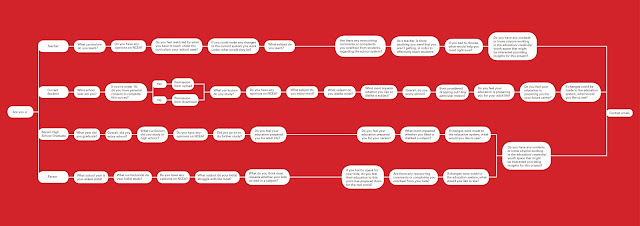Bibliography (To this point in week 6)
Web Source Article Roberts, Yvonne. “How do we make our schools fit to face the 21st century?” The Guardian, 4 Sept. 2011. https://www.theguardian.com/education/2011/sep/04/how-do-we-make-schools-fit-for-children "Education in New Zealand.” Wikipedia, 22 Feb. 2019, Education in New Zealand - Wikipediahttps://en.wikipedia.org/wiki/Education_in_New_Zealand “A creative education system brings it’s own problems” The Observer, The Guardian, 11 Sept. 2011. https://www.theguardian.com/theobserver/2011/sep/11/letters-creativity-in-schools Schien, Michael. “The Next Revolution in Education: Design Thinking.” Forbes. 8 Jan. 2019. https://www.forbes.com/sites/michaelschein/2019/01/08/the-next-revolution-in-education-design-thinking/#9814e5f61c65 Astle, Julian. “Do Schools Really “Kill Creativity”?” RSA. 25 Apr. 2018. https://www.thersa.org/discover/publications-and-articles/rsa-blogs/2018/04/do-schools-kill-creativity Abraham, Maurie. “Learning design...









